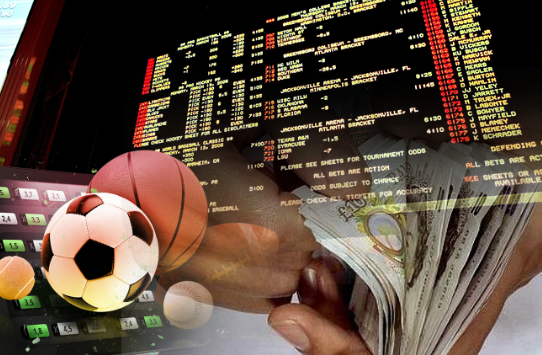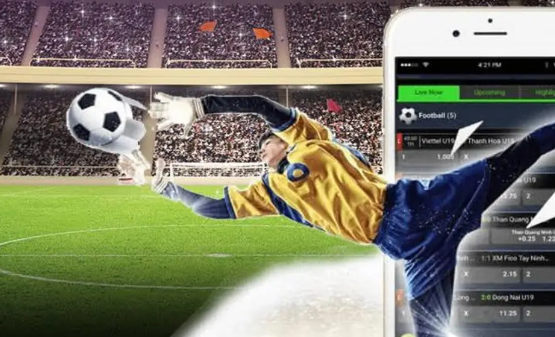The Case for Sports Betting in America
On a new Saturday evening, I subside into a rich cowhide sofa at a burger joint inside Las Vegas' new SLS Lodging and Club with a cool brew and a folded ticket in my right hand. Ruler is playing on the speakers and connoisseur bar toll like ahi fish burgers sits on the tables. I could be in any upscale games bar, save for that piece of paper, which expresses that since I bet $100 on the College of Arkansas men's b-ball group, I will win $1,000 on the off chance that the Razorbacks can some way or another hand the Kentucky Wildcats their most memorable loss of this school ball season.
What's so amiss with this image? Nothing. Yet, for the honor of leaving behind $100 in light of the fact that Kentucky won in a defeat, I had no real option except to make a trip to Nevada, the main state in America that permits all out sports wagering. For what reason would it be a good idea for me to need to fly a large number of miles to go with a dumb choice legitimately?핀벳88 가입안내
The inquiry is particularly perplexing these days since speculators in each side of the nation are seeing loads of activity at any rate. From Walk 17 to April 6, for instance, nearly $2.5 billion will unlawfully change hands in the U.S. This three-week school b-ball gold mine, College basketball, is a craze of illegal betting. In any case, that is only a small portion of the aggregate sum won and lost under the table.맥스벳 가입안내
An expected $140 billion every year is illicitly bet on sports in the U.S., as per the American Gaming Affiliation (AGA). But at a second when states the nation over have loosened up betting forbiddances and constructed many new club, a 1992 government regulation bars sports wagering wherever with the exception of Nevada, Delaware, Oregon and Montana, expresses that permitted legitimate games betting before the law's entry. (Today Delaware permits just particular kinds of wagers on NFL games, and Montana offers state-authorized dream football and NASCAR match-ups, while Oregon no longer has a games wagering lottery.)스보벳 한국어지원
It's the ideal opportunity for that to change. Putting down $10 in the host group ought to as of now not be unlawful. Like drinking liquor, betting on sports is a socially OK conduct with some restraint and can be an income hotspot for desperate regions. At present, all that cash is going to bookies and seaward sites. America is overlooking millions and not making any meaningful difference with the recognized disadvantages of betting.
A lot of different countries understand this. As indicated by Worldwide Wagering and Gaming Specialists, 105 nations including spots where major U.S. elite athletics groups play ordinary season games-license wagering. The NFL, which effectively goes against the further legitimization of sports betting, messes around in London, where customer facing facade wagering parlors speck the roads like Starbucks. What's more, it's generally accepted that betting, which incorporates calls to the neighborhood bookie as well as dream sports and office pools, can support fan commitment and the prevalence of sports associations.
America's significant professional athletics associations have long contended that betting dangers making motivators for competitors to fix games, yet late remarks from two chiefs are characteristic of a more extensive change in thinking. Despite the fact that baseball's true situation against legitimized betting hasn't changed, new MLB official Burglarize Manfred tells TIME it is "officeholder" on him to return to the issue with proprietors.
NBA chief Adam Silver has gone further, finishing the association's resistance to legitimized elite athletics betting. Silver says his view advanced subsequent to perceiving how European soccer fans remained put resources into games as they put in-game bets on their cell phones. "It's essential for the way of life in Europe to wager on games. Obviously, it's lawful and managed," Silver says what time it is. "It's essential for the way of life in the US to wager on games." He adds, giggling, "It incidentally turns out to be unlawful."
An Imperfect Regulation
The U.S's. current restriction on lawful games betting dates to 1992, when Congress passed the Expert and Novice Sports Assurance Act (PASPA), prohibiting sports betting in 46 states. Considering how more serious off-field issues, similar to abusive behavior at home, have taken steps to crash our delight in sports, the contentions for PASPA currently sound terribly curious. "There could be no more prominent danger to a competitor's very own feeling of achievement than state-legitimized sports betting," previous NFL star Mike Singletary told a Senate subcommittee in 1991. At the hearings, allies of the law wore buttons with so much mottos as Don't Bet with our Youngsters' legends.
For a regulation intended to restrict sports wagering, PASPA has flopped pitiably. As per UNLV's Middle for Gaming Exploration, Nevada's lawful games wagering market has dramatically increased since PASPA's section, from $1.8 billion to $3.9 billion. While it's impractical to precisely measure the unlawful market in the U.S., the AGA, an exchange bunch that accepts that ongoing games betting regulation is imperfect, says it has been developing, from an expected $80 billion out of 1999 to $140 billion out of 2014.
Such patterns should demolish sports. "The spread of authorized sports betting would change everlastingly and for the more terrible what our games depend on and how they are seen," previous NFL chief Paul Tagliabue said in 1991. However while sports wagering legitimate and not-has soar, groups have just become more important. In 1991 the normal NFL establishment was valued at $125 million. Today, as indicated by Forbes, a typical group is esteemed at $1.43 billion.
Fears about game-fixing haven't been borne out all things considered. "There is definitely no proof that sanctioning betting prompts expanded match fixing," says Sean Patrick Griffin, a law enforcement teacher at the Stronghold and the writer of Gaming the Game, a book about previous NBA ref Tim Donaghy, who confessed to passing inside data to unlawful bettors.
Silver, as far as one might be concerned, accepts that betting guideline could be a keep an eye on fixing. "Number one, I support it to safeguard the uprightness of the game," he says. "On the off chance that we keep on seeing monstrous measures of underground wagering at our games, at a volume that we know-in view of the data that we have-is developing quickly, that sets out a greater amount of a freedom for unseemly exercises." Which checks out: How could hoodlums open themselves to controlled markets when the black market is such a ton bigger? Legitimate games books have huge motivating force to screen movement, since it's their cash on the snare assuming fixers win enormous wagers.
Nor does it help that Congress passed a regulation expected to stop a bad habit while simultaneously basically giving one express a ceaseless restraining infrastructure on that bad habit. "The grandfathering is a genuine peculiarity," says Ryan Rodenberg, a games betting regulation master at Florida State College. "I haven't had the option to track down another regulation that emulates PASPA."
Maybe the best contention against PASPA is the fleeting ascent of imagination sports. Nearly 41 million Americans and Canadians played dream sports last year, as indicated by the Dream Sports Exchange Affiliation, and it has turned into a vital way for associations to develop fan interest (and make extra income). Because of a cut out in the 2006 government Web Betting Forbiddance and Requirement Act, dream sports are viewed as a talent based contest. However, in soul, playing dream and it are basically something similar: you win or lose in light of the unusual results of sports to bet on a game.
Silver's ancestor, previous NBA chief David Harsh, cautioned as of late as 2012 about sanctioned betting making alleged point-spread fans who leave the field grimacing in light of the fact that their #1 group won however didn't cover the spread. His replacement has a more logical view. "Assuming our fundamental concern was that we just need fans pulling for our group to win, then we ought not be in the dream sports business," says Silver. In November, the NBA gained a value stake in the dream site FanDuel, which paid out more than $560 million in rewards in 2014. "Ideally, certain, I need a Nets fan to go to a game and just be fulfilled in light of the last score," says Silver. "Yet, that is not practical."
The tagging market offers a plan. Ticket hawkers, similar to card sharks, were once the trouble makers. Yet, in the previous 10 years, sports groups have cooperated with genuine organizations like StubHub, making it straightforward to exchange a ticket for benefit. "There was such protection from the auxiliary market," says Jeanie Buss, president and part proprietor of the Los Angeles Lakers. "And on second thought it's been something that has really done right by our fans, it's been great for business, it's made positions. Also, those organizations settle charges." Bringing sports betting out of the shadows could make comparative advantages.
Dangers and Prizes
Indeed, even some PASPA defenders perceive that the ongoing guidelines are a remnant of the pre-Web period. "On the off chance that I were there, I would positively take a gander at it once more," says Dennis DeConcini, who presented PASPA as a U.S. Representative from Arizona. "Times change, with the Web and what have you." Could he fix it? "I could be persuaded," he says.
In January, Arizona Representative John McCain, DeConcini's previous associate, said Congress ought to hold hearings on returning to PASPA. In the mean time, regulation is forthcoming in five expresses that would authorize sports betting. In any case, a battle in New Jersey might be the primary genuine trial of the law. In October, Lead representative Chris Christie marked a bill legitimizing sports betting at the state's gambling clubs and courses. Major U.S. elite athletics associations and the NCAA sued to impede the action, and an investigative hearing is booked for Walk 17.
New Jersey's reasoning is straightforward. At the point when PASPA became regulation, Nevada and Atlantic City, N.J., were the main significant club objections in the country. From that point forward, states the nation over have diverted to betting from lotteries to undeniable gambling clubs to fill their money chests. Starting around 1989, 21 states have opened 236 business club, accordin





댓글
댓글 쓰기